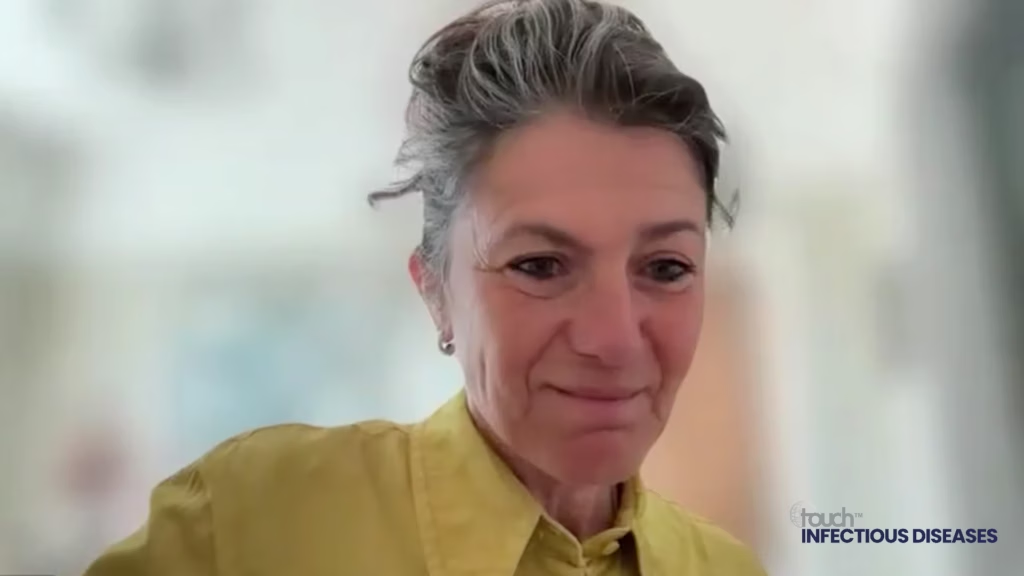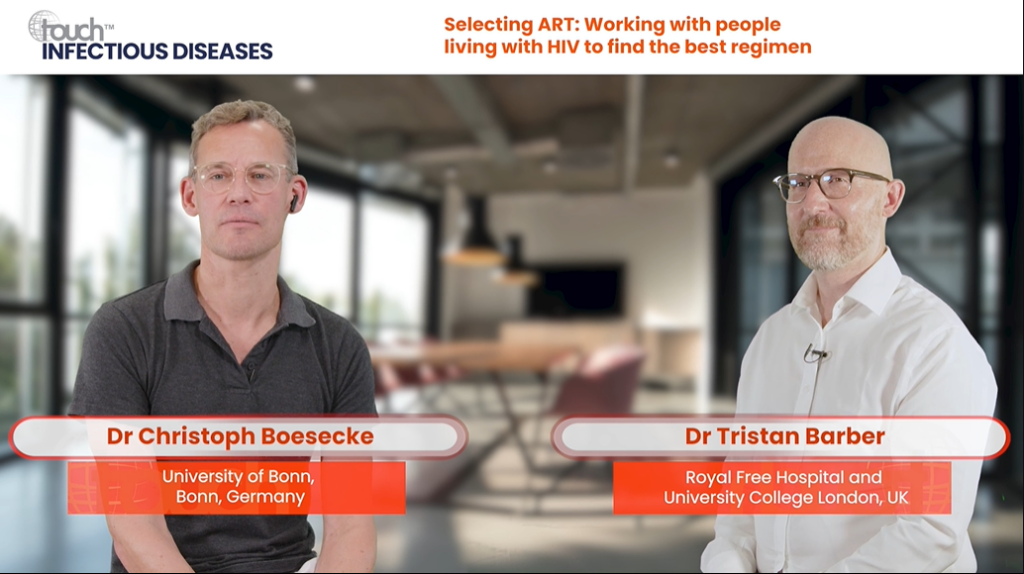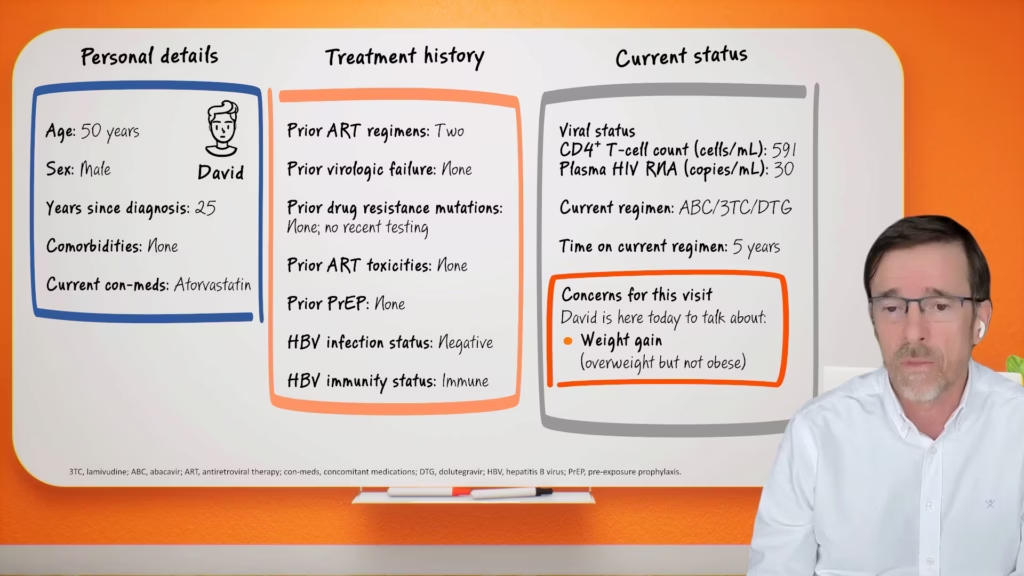HIV
An Introduction to HIV
HIV infection has been a major global problem since its emergence in 1981. Antiretroviral drugs revolutionized the treatment and prevention of HIV, but adherence and the impact on quality of life are ongoing challenges. New longer-acting treatments have recently been introduced to help address these issues, and evolving treatments with a novel mode-of-action are currently under investigation.
Expert video highlights and insights from the conference hub and comprehensive peer-reviewed articles from our journal portfolio provide updates on the changing treatment landscape. To learn more about how the latest developments impact on patient outcomes view our expert-led learning activities.

The International AIDS Society Conference 2025 (IAS 2025) brought together global leaders in HIV science, policy, and community advocacy against a backdrop of funding crises and scientific breakthroughs. In Kigali, Rwanda, one theme rang clear: innovation alone isn’t enough. Delivery, access, and equity must catch up with the science. We spoke with leading experts and advocates to ask: What single development at IAS 2025 will have the greatest impact on HIV prevention or care going forward? Their answers capture the momentum, and the challenges, that will shape the next era of the global HIV response.

Mitchell Warren discusses insights from the IAS 2025 session, “Re-imagining prevention: Planning for sustainable PrEP access in the new funding context”, highlighting the most pressing global HIV prevention priorities, the promise of long-acting pre-exposure prophylaxis (PrEP) technologies, and the need for urgent, equity-focused investment, especially amid uncertain funding landscapes.

Prof. Kenneth Mayer discusses promising Phase 2 results for MK‑8527, a once-monthly oral PrEP candidate. He highlights its favourable safety profile, potential to improve adherence, and how upcoming Phase 3 trials could shape the future of HIV prevention across diverse global populations.

In this interview, Dr Katherine Gill discusses key findings from the phase III PURPOSE 1 and 2 trials, which evaluated twice-yearly injectable lenacapavir for HIV prevention in adolescents and young people. She highlights the drug’s efficacy, safety, and pharmacokinetics, as well as its potential to overcome adherence challenges associated with daily oral PrEP and its integration into youth-focused HIV prevention programmes.

"Even with intensive support, short-cycle therapy did not match the effectiveness of daily treatment in adolescents." - Dr Adeodata R. Kekitiinwa Short-cycle therapy (SCT) has previously shown promise in maintaining viral suppression among young people living with HIV. In ...

Physician burnout is at a critical point. In this episode, Nicky speaks with Dr Alfred Atanda about why so many physicians are burning out and what can be done to change the trend. From personal experience to system-wide solutions, Dr Atanda shares valuable insights on improving physician well-being and building a more effective healthcare culture.

The RIO study tested whether broadly neutralizing antibodies could safely replace daily HIV therapy. In a rigorously designed trial, 75% of participants maintained viral suppression for 20 weeks after stopping antiretrovirals. The findings mark a pivotal step toward potential HIV remission and more flexible treatment strategies.

In this episode, we explore the future of continuing medical education (CME) with the team behind touchIME. Hannah Fisher and Matthew Goodwin share insights into global and US trends, the importance of patient inclusivity and how educational outcomes are evolving to better measure the direct impact of learning on clinical practice and patient care.

Dr. Sarah Fidler discusses the challenges of lifelong antiretroviral therapy for HIV and the need for alternative approaches. She highlights broadly neutralising antibodies (bNAbs) as a promising strategy that targets the virus and dormant infected cells, potentially enabling longer-term control by harnessing the immune system’s memory without daily medication.

For more than 40 years, Rebecca Denison has lived with HIV and advocated for women affected by the virus. A longtime activist and founder of WORLD, she has witnessed the epidemic’s evolution. In this interview, she reflects on scientific progress, ongoing challenges, and why the fight against HIV is far from over.

“An HIV vaccine wouldn’t just save lives; it would transform entire communities” Despite decades of research and advances in HIV treatment, an effective vaccine is still in development. The disease's ability to mutate, evade the immune system and persist ...

The Conference on Retroviruses and Opportunistic Infections (CROI) is the leading global meeting for HIV research, bringing together over 4,000 experts from around the world. It serves as a platform for researchers to translate laboratory and clinical discoveries into meaningful advancements ...

Welcome to the latest edition of touchREVIEWS in Infectious Diseases, where we continue our mission to deliver insightful, cutting-edge perspectives in infectious disease diagnosis and management. This issue offers an array of topics spanning diagnostics, service delivery innovations and preventive ...

The world can eliminate AIDS by empowering communities and prioritizing human rights. We can end AIDS as a global health threat by 2030. The World Health Organization (WHO) joined forces with partners and communities to commemorate World AIDS Day 2024 (1 December), ...

As 2024 draws to a close, we’re celebrating a wonderful year of content. From insightful expert Q&As and peer-reviewed articles to conference highlights and a wealth of medical education, it’s been a year filled with content that we hope has been useful to our audience. We’ve had the privilege of connecting with leading experts and working alongside medical societies to support the infectious diseases community with high-quality, easily accessible content.

Two experts discuss best practices for antiretroviral therapy (ART) selection for people living with HIV.




Latest articles videos and clinical updates - straight to your inbox
Log into your Touch Account
Earn and track your CME credits on the go, save articles for later, and follow the latest congress coverage.
Register now for FREE Access
Register for free to hear about the latest expert-led education, peer-reviewed articles, conference highlights, and innovative CME activities.
Sign up with an Email
Or use a Social Account.
This Functionality is for
Members Only
Explore the latest in medical education and stay current in your field. Create a free account to track your learning.



